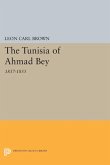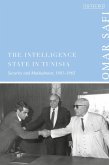When an authoritarian regime collapses, what determines whether an opposition group will form a political party, be successful in mobilizing voters, and survive or dissolve as a group in subsequent years? Based on unique field research, Alanna C. Torres-Van Antwerp examines the origins of the dramatic political arc of Egypt's Muslim Brotherhood - from winning a plurality of parliamentary seats and the presidency in the first free elections in eighty years to being ousted from office eighteen months later through a popular coup - and finds common causal factors that structured the fates of other formerly repressed opposition groups in five comparative cases. She demonstrates how the processes of party formation, electoral mobilization, and party dissolution after the ousting of an authoritarian regime were shaped by the way that regime structured the resources, incentives, and constraints available to opposition groups in the previous era.
Dieser Download kann aus rechtlichen Gründen nur mit Rechnungsadresse in A, B, BG, CY, CZ, D, DK, EW, E, FIN, F, GR, HR, H, IRL, I, LT, L, LR, M, NL, PL, P, R, S, SLO, SK ausgeliefert werden.









